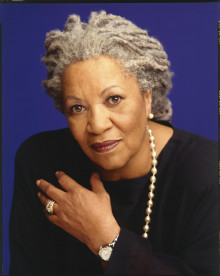This summer we lost one of the icons of American literature, Toni Morrison. Lovely obits have been carried in national – and international – media.
But it was Ross Douthat’s recent op-ed that caught my eye. He explained the enormous impact she had on all of us. Here’s how he began:
Toni Morrison was a great American novelist who was also a Great American Novelist. This means she had a special form of celebrity, an oracular status, and also that she was embraced by the tradition that regards novels as keys to interpreting America — insisting that you must read Morrison (and Ellison and Wright and Hurston) to understand the black experience, just as you must read Hawthorne and Melville to understand the legacy of Puritanism, or Faulkner or Cather to understand the South or West, and so on down the high-school English list.
So her passing raises the question: Is she the last of the species? The last American novelist who made novels seem essential to an educated person’s understanding of her country?
That question won’t be answerable for decades — the time it took to exhume, for instance, “Moby-Dick” and “The Great Gatsby” from their temporary graves. We can’t know how Morrison’s reputation will change, or the reputations of her peers or the status of their art form. The American novel was supposed to be eclipsed long ago by movies and television … and yet it proved resilient enough that, coming of age long after TV, I was still imprinted with the idea that novels were essential cultural ground, as important as Spielberg or “The Sopranos.”
But something has changed in the cultural status of the novel in the time I’ve been a reader, the years between Morrison’s canonization and her passing — and maybe especially the years since social media and the iPhone first arrived.


